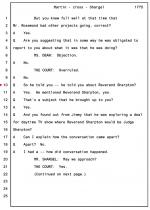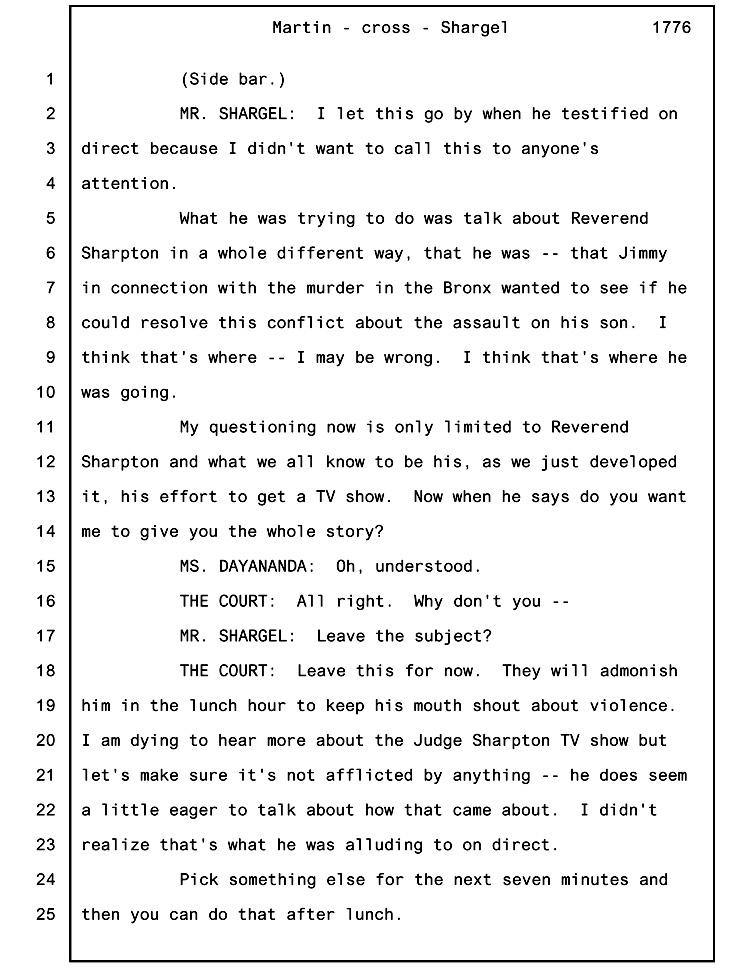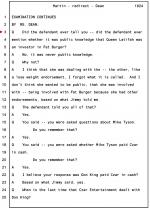Sharpton And Alleged Trafficker Peddled TV Show
Activist, accused kingpin pitched "Judge Sharpton"
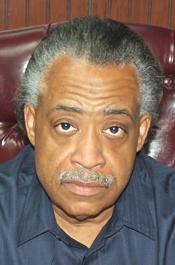
View Document
MAY 30--A convicted felon now on trial for allegedly heading a large cocaine trafficking ring once worked with Rev. Al Sharpton to develop a TV show in which the civil rights activist would have starred as “Judge Sharpton,” according to testimony yesterday in Brooklyn federal court.
Details about the proposed daytime program featuring Sharpton in a Judge Judy-type role emerged at the trial of James Rosemond, the hip-hop manager who is facing life in 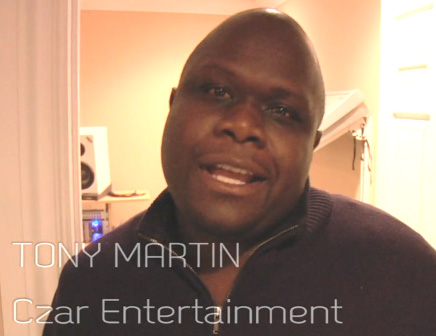 prison for his alleged role in a cross-county narcotics ring that generated tens of millions of dollars through the sale of thousands of kilos of cocaine.
prison for his alleged role in a cross-county narcotics ring that generated tens of millions of dollars through the sale of thousands of kilos of cocaine.
Rosemond’s business dealings with Sharpton were detailed yesterday by government witness Tony Martin, who worked closely with Rosemond at Czar Entertainment, the management company that prosecutors contend served as a front for the cocaine operation (and through which drug profits were laundered).
The 31-year-old Martin, pictured above in a video still, was questioned by prosecutor Una Dean about several Rosemond investments and business projects. At one point, Dean asked Martin about “Czar doing a project with Al Sharpton.” Martin answered that Rosemond “tried to get Al Sharpton a judge, a judge TV show.” Though Sharpton was not actually a jurist, Martin testified that “the way they can maneuver it through TV, he can get him a TV show as Judge Sharpton.”
Martin, who has pleaded guilty to money laundering in connection with the cocaine ring, said that the bid for a “Judge Sharpton” show came in 2009 and was not successful. Last August, Sharpton debuted as host of MSNBC’s daily “PoliticsNation” program.
Asked if the Sharpton project generated income for the 47-year-old Rosemond, Martin replied, “No, Jimmy said it was costing him money because he was paying for Al Sharpton to go to Los Angeles. He was paying for his hotels, he was hiring his car service to go to meetings. Stuff like that.” It is unclear whether these costs included payments directly to Sharpton.
Prosecutors contend that the overwhelming majority of Rosemond’s income was derived from cocaine trafficking, and that he funneled these illicit gains into real estate, entertainment ventures, and restaurant franchises. So it appears likely that money spent by Rosemond on the “Judge Sharpton” project would have come from the proceeds of this alleged narcotics operation.
At the time Rosemond--who is nicknamed “Jimmy Henchman”--met Sharpton, the hip-hop figure was already a career criminal whose rap sheet dated back to 1981 and  included multiple weapons charges, along with collars for robbery, assault, drug distribution, and larceny. He had spent a total of nearly seven years behind bars for his various federal and state convictions.
included multiple weapons charges, along with collars for robbery, assault, drug distribution, and larceny. He had spent a total of nearly seven years behind bars for his various federal and state convictions.
Martin testified that Sharpton and Rosemond (both of whom have frequented the private Grand Havana Room cigar bar on Fifth Avenue) met after a March 2007 incident during which Rosemond’s son was roughed up on a Manhattan street by associates of the performer 50 Cent (who was then involved in a rap world beef with The Game, a Los Angeles-based rapper managed by Rosemond).
“Jimmy was in a space in his life where he wasn’t really trying to do anything wrong, so he took the political route to protect his son, and he met Al Sharpton that way,” Martin told jurors. “And as their relationship went on he tried to get Al Sharpton a judge, a judge TV show.”
Martin did not further describe what, if anything, Sharpton did to help squash disputes and “protect” Rosemond’s son. However, two years after the teenager was attacked, one of his assailants, Lowell Fletcher, was shot to death on a Bronx street corner.
During meetings last year with investigators to explore the possibility of striking a cooperation agreement, Rosemond admitted his role in the conspiracy to kill Fletcher. However, those nine Rosemond “proffer sessions” did not result in a cooperation deal. In February, a federal prosecutor revealed that he expected Rosemond to be indicted in connection with the Fletcher murder. While two Rosemond associates have been charged with the homicide, Rosemond’s name has not been publicly added to the case, which is pending in U.S. District Court in Manhattan.
As TSG reported last week, Rosemond was questioned about his dealings with Sharpton during an October 4 proffer session. He told federal investigators that he once gave 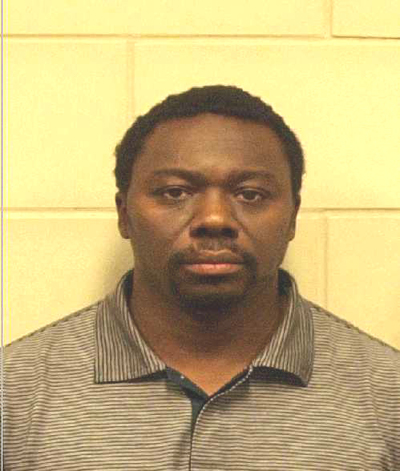 Sharpton about $10,000 as a “donation or a contribution.” When asked about this reported donation, Sharpton told the New York Post he did not recall the donation.
Sharpton about $10,000 as a “donation or a contribution.” When asked about this reported donation, Sharpton told the New York Post he did not recall the donation.
At the direction of Judge John Gleeson, federal prosecutors and Rosemond’s lawyer have avoided discussion of the Fletcher homicide since it is not part of the cocaine trafficking case (which does not include allegations of violence). In fact, when Martin broached the subject by testifying about the assault of Rosemond’s son, Shargel sidestepped the matter during his cross-examination of Martin, who described Rosemond (seen in the above mug shot) as his “big brother.”
At a subsequent sidebar with Gleeson and prosecutors, Shargel noted, “I let this go by when he testified on direct because I didn’t want to call this to anyone’s attention.” Shargel added that his questioning about Sharpton would be limited to the “Judge Sharpton” TV proposal.
Gleeson concurred with this approach, saying that prosecutors would admonish Martin to “keep his mouth shut about the violence.” The judge added, “I am dying to hear more about the Judge Sharpton TV show but let’s make sure it’s not afflicted by anything.”
In other testimony, Martin said that Rosemond had invested with Queen Latifah and the rapper/actress’s business partner, Shakim Compere, in a $1 million movie project (“The Cookout 2”) and a pair of Fatburger restaurants in Florida.
When asked by Dean if it was “public knowledge” that Latifah (real name: Dana Owens) had invested in the fast food outlets, Martin replied, “No, it was never public knowledge.” Martin explained that he did not think Latifah--who had a lucrative endorsement deal with Weight Watchers--“wanted to be public that she was…being involved with Fatburger.” (5 pages)





